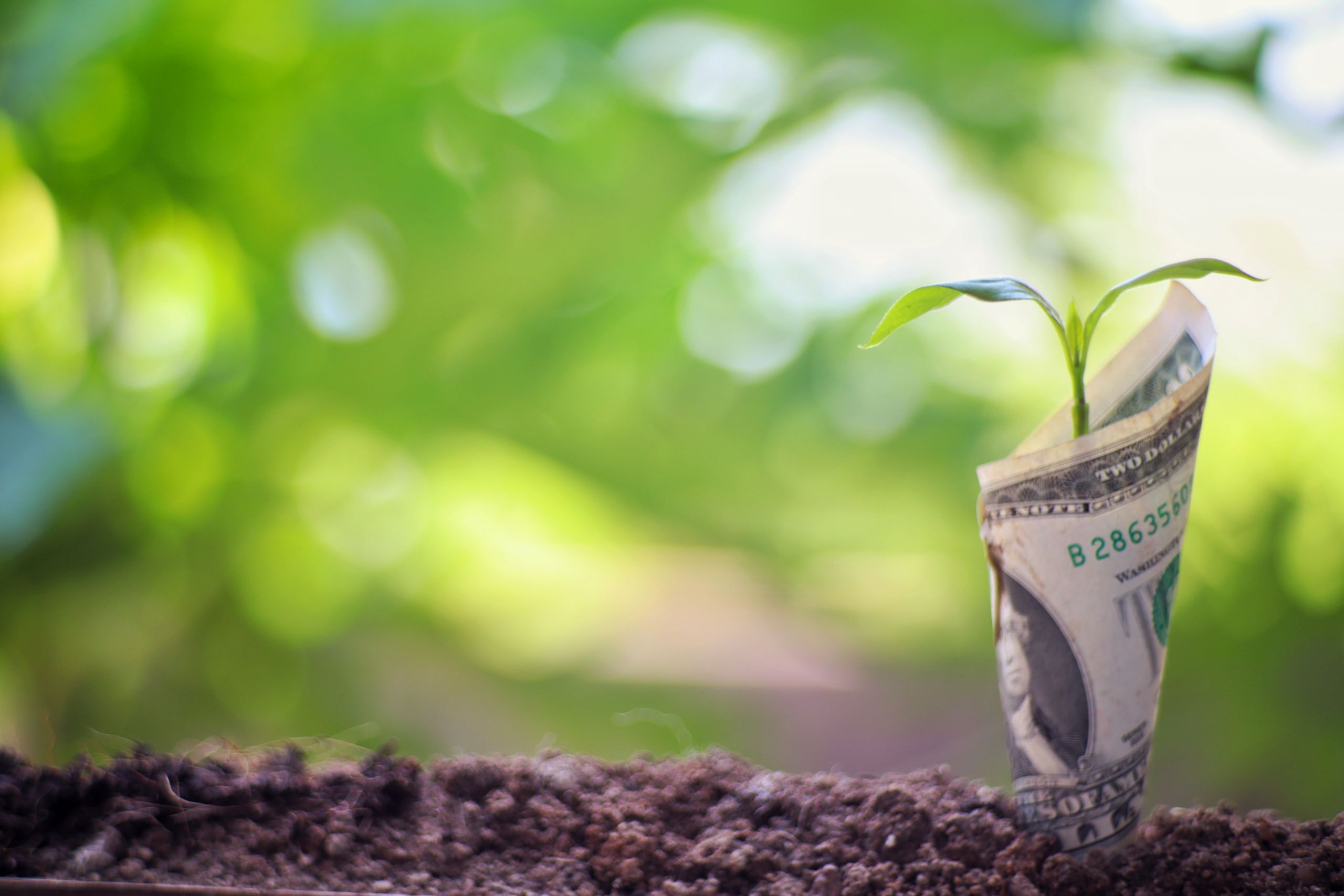We must move beyond ‘green capitalism’

(Illustration: Shutterstock)
Big corporations are branding themselves as sustainable. But the capitalist logic of expansion and consumption that makes them thrive is the real climate issue, a CBS professor claims in his new book.
ResearcherZone | 16. Dec 2019
By Stefano Ponte, Professor of International Political Economy and Director, Centre for Business and Development Studies, CBS.
Green growth, corporate social responsibility and sustainability management have become part of the lexicon of business – in Denmark and beyond.
Sustainability competitions and prizes showcase the ‘good work’ that some corporations are doing to address social and environmental concerns, from the global to the local levels.
Many large firms regularly publish sustainability reports to document their commitment to a better future, while reassuring investors that they can achieve positive financial results too. They also require their suppliers (often based in the global South) to improve their own social and environmental practices.
Given this picture, do we need different or additional regulatory interventions and activism to push business to further improve their practices?
Drawing from twenty years of research from the ground up, my new book Business, Power and Sustainability shows in painstaking detail how managing sustainability has become big business.
Yet, climate change, rampant deforestation and loss of biodiversity suggest that corporations are not doing nearly enough to address global sustainability challenges.
Corporations cash in by showcasing eco-efforts
In the name of sustainability, a massive transfer of resources is actually taking place along global value chains – from the global South to the global North, from producers to global buyers and consumers, and from labour to capital.
Global buyers are finding new ways to extract environmental value from their suppliers, making more money for themselves while leaving little impact on sustainability.
The gradual mainstreaming of sustainability that underpins green capitalism has been driven by cost-cutting and eco-efficiency efforts which provide corporations with a ‘business case’ for applying environmental improvements.
Eco-efficiency processes such as decreasing energy and water use, optimizing packaging, and improving recycling often lead to net cost reductions in operations and thus allow a focus on the bottom line – something that became even more urgent following the economic downturn of the late 2000s.

Companies like Ikea and Walmart have applied substantial cost-cutting measures on energy consumption, packaging and transport in their own operations, while showcasing these as examples of their ‘commitment to sustainability’.
…at the expense of the Global South
Furthermore, lead firms in global value chains are placing new environmental demands on their suppliers, including requests for more information on supplier cost structures and operations.
This allows buyers, when possible, to squeeze purchasing prices even further, especially in the Global South. When profit margins decrease for suppliers, they negatively affect their economic sustainability and can also have negative rebounding effects on social sustainability – e.g. driving suppliers to cut labour costs or worsen work conditions to recoup the extra environmental costs.
Green capitalism has little interest in actually tackling climate change
But, at the very least, are corporations actually making a difference in addressing global sustainability challenges?
I argue that sustainability management is at work for green capital, but does not really address environmental challenges.
Climate change, rampant deforestation in some parts of the globe, loss of biodiversity, and ocean acidification suggest that current business practice is not enough, that current regulatory instruments are falling short, and that social movements and activism still have a long way to go.
But from the perspective of green capitalism, tackling ever-increasing production and consumption is not a priority. The focus is on how technology and new business models can improve the efficiency of resource use, instead of decreasing the aggregate impact on the Earth and its biosphere.

Furthermore, more efficient extraction and use of natural resources often leads to lower prices and this can prolong and even increase fossil fuel consumption and the extraction rate of natural resources.
And while in the global North economies may be ‘dematerializing’, the use of energy and materials is actually moving to production facilities in the global South rather than decreasing overall.
For things to really change, we must break with the logic of expansion
In other words, while green capital accumulation strategies that optimize resource consumption are helping to lower the relative energy and material intensity of production, they do not address the overall ecological limits to growth because they are based on a logic of continuous expansion.
Technological and organizational fixes, such as cutting energy costs, improving packaging materials, minimizing transport distances, and building green brands credentials, can improve how much energy and resources we use to produce a unit of a product.
But this does not necessarily lead to overall reductions when production and consumption continue to rise.
From Anthropocene to Capitalocene
While incremental change is needed, it is not sufficient without a systemic rethinking of the relations between capitalism and nature.
Human activity is having major impact on the earth and its biosphere, to the point that geologists have now defined a new era – the Anthropocene – to reflect this phenomenon.
Yet, others have questioned the focus on humanity as an undifferentiated whole in the term Anthropocene and propose a different concept to explain the same result: Capitalocene, the era of capitalism as a way of organizing nature.
This entails that the idea of ‘sustainable development’ in the context of green capitalism will not be achieved unless we rethink the current organization of the global economy, reform the economic and political institutions that govern it, and devise new forms of governance and collective action.
As long as sustainability is used mainly as a marketing and strategic tool, a means of capital and wealth accumulation, and is subservient to economic growth – efficiency gains will continue to be reinvested in further expanding production and consumption and to be transformed in wealth for the global plutocracy, ultimately exacerbating the global sustainability crisis.
What is the alternative?
Alternative ideas, models and practices to the contemporary form of green capitalism are already emerging.
Some approaches suggest a focus on the planetary boundaries within which humanity operates, prosperity without growth, or de-growth.
A myriad of examples are available on how these alternative models of the economy can work and where they are working – especially when coupled with community involvement, union and social activism, decentralization, cooperative forms of organization, and radical and democratic ecological experimentation.

Yet, these are still fringe movements and pale in comparison to the damage inflicted by capitalism to nature, even under its green mantle.
Showing the way towards just sustainabilities
Ideationally, current discussions of just sustainabilities have important insights to offer.
In Just Sustainabilities: Development in an Unequal World, Professor of Urban and Environmental Politics and Planning at Tufts University Julian Ageyman and colleagues argue for the need to ensure a better quality of life for all, now and in the future, in an equitable manner, and by living within the limits of supporting ecosystems.
They suggest that a path towards just sustainabilities entails addressing inequality – since it drives competitive consumption and leads to a lower level of trust in societies, which makes public action more difficult.
They also call for focusing on improving quality of life and wellbeing, rather than growth; for a community economy and increased public consumption; for reimagining the needs of current and future generations; and for a paradigm of sufficiency, rather than the maximization of consumption.
Ethical consumption is not enough
Paying attention to what we buy and how it was produced remains important, but we cannot buy our way into a sustainable future.
The imperatives of growth and consumption are part of the problem and cannot be the solution. Although the ideas for reform and incremental change, including those discussed in Business, Power and Sustainability, are important, we also need more radical social and economic transformation and we need to create new spaces for alternatives.
This is why understanding the power dynamics underpinning green capitalism is so important – as they indicate the pressure points that public actors and civil society can use to leverage not only reform but also more radical change.
This knowledge can expose the Achilles’ heel of green capitalism and stack the quivers of government and civil society with the arrows necessary for just sustainabilities to be achieved.



































































































































Comments